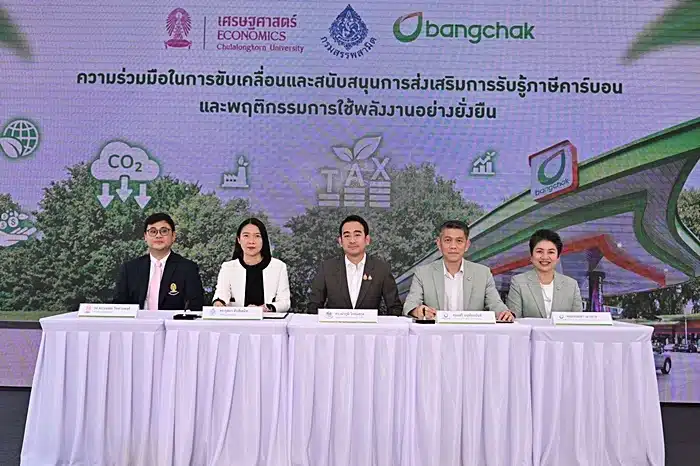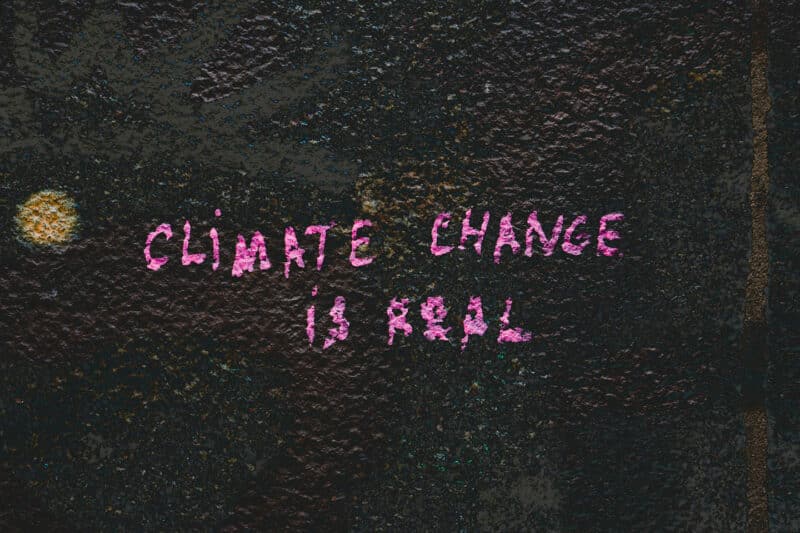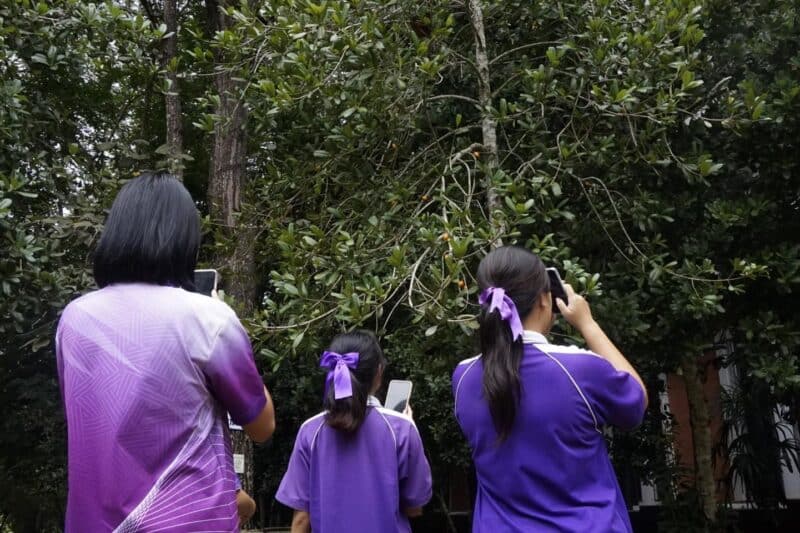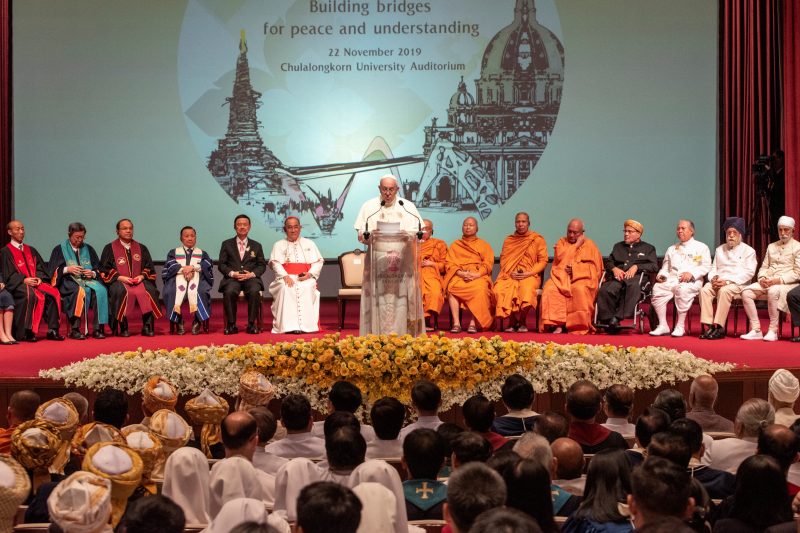Project CarbonAware: Turning Carbon Tax Communication into Climate Action
“Carbon taxes are among the most effective tools to cut greenhouse gas emissions, yet they often go unnoticed when hidden in fuel prices. Thailand offered a rare opportunity to test whether communication alone can change behavior. In 2025, the government introduced a carbon tax disclosed separately within the fuel excise structure while keeping pump prices unchanged. CarbonAware conducted a randomized survey experiment with 1,800 drivers nationwide, exposing them to different tax formats and message framings. The results were clear: simplified “per tank” information reduced reported fuel use by 5%, while messages linking fuel use to everyday climate harms such as floods and heatwaves cut use by a similar amount. Among the regular public—three-quarters of drivers—fuel use fell by 10%. Now moving from research to practice, CarbonAware is partnering with the Excise Department and fuel companies (Bangchak and PTTOR) to pilot these insights through pump displays and digital platforms.”
Sudden floods, severe heatwaves, and prolonged droughts are becoming alarmingly regular across the globe. Governments respond with policies designed to shift behavior to curb carbon emissions. Yet no matter how well designed, policies cannot succeed if people neither notice nor understand them. Carbon taxation, one of the most effective tools to reduce greenhouse gas emissions, faces this challenge. Roughly half of carbon tax implementations worldwide are hidden within fuel prices, unnoticed by consumers. And unnoticed policies rarely change behavior.
Thailand offered a rare opportunity to study this problem. In 2025, the government introduced a carbon tax disclosed separately within the fuel excise structure, while keeping the overall tax burden unchanged. This unusual design isolated the effect of communication, independent of price increases. Our research asked: Can the way a carbon tax is communicated—its salience and framing—change consumer fuel use even when prices remain the same?
To answer this, we conducted a randomized survey experiment with 1,800 drivers across Thailand, using quota-based sampling to reflect the nation’s geographic and demographic diversity. The survey employed a panel difference-in-differences design, tracking behaviors across three stages to test how communication influenced fuel use without price changes. Participants were exposed to different presentations of the carbon tax: either generalized information expressed as per-liter rates—the format most governments use—or simplified information as the total carbon tax per full tank, making the cost more personally relevant. Message framing was also varied: some participants received abstract carbon emissions data, while others saw vivid descriptions of tangible climate harms such as floods, droughts, and heatwaves.
The results were striking. Simplified per-tank communication reduced reported fuel use by 5%, while general per-liter communication had no effect. Messages linking fuel use to tangible climate harms also reduced fuel use significantly, whereas abstract carbon figures failed to change behavior. The strongest effects came from the regular public, about three-quarters of all respondents, who reduced fuel use by 10%. By contrast, highly engaged drivers, already motivated by environmental concerns, showed no additional response.
CarbonAware, initially funded by Chulalongkorn University, has already moved beyond research into action. In partnership with the Excise Department, Bangchak, and PTTOR, the team is piloting these communication strategies through membership platforms and gas pump displays nationwide. These trials are laying the foundation for a countrywide rollout by the Excise Department, transforming research insights into practical tools that can shape real consumer behavior at scale. CarbonAware offers policymakers a low-cost, high-impact tool to strengthen public engagement and accelerate the transition to a low-carbon future.
By Faculty of Economics, Chulalongkorn University
Others






